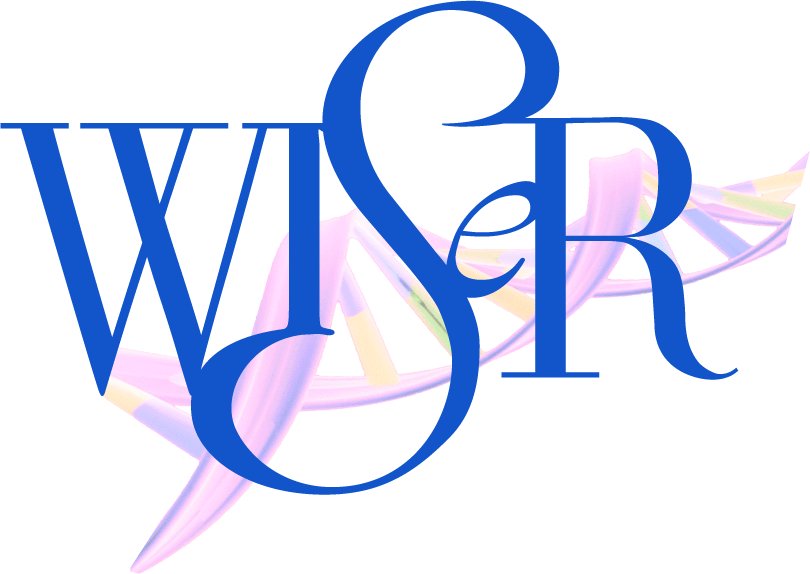By Asma Hatoum, Mariko Kobayashi, and Alessia Deglincerti
 This summer, a small group of postdocs came together to launch a new initiative called wiser (Women In Science at Rockefeller) to begin to tackle a persistent problem: the underrepresentation of female leaders in academic and non-academic sectors of science.
This summer, a small group of postdocs came together to launch a new initiative called wiser (Women In Science at Rockefeller) to begin to tackle a persistent problem: the underrepresentation of female leaders in academic and non-academic sectors of science.
While women hold 60% of all bachelor’s degrees and constitute 48% of the overall workforce, females in leadership positions, particularly in the stem (Science, Technology, Engineering, and Mathematics) fields, remain a minority. In 2009, the National Research Council released a congressionally mandated report on gender differences in science and engineering faculty at key transition points in their careers. One of the most striking findings in the report was that a gender gap is most apparent at the phd to faculty transition—women are simply not applying to tenure-track positions at research-intensive institutions. This gender gap is particularly pronounced in the biological sciences: in the 1999-2003 period, women received 45% of biology phds but represented only 26% of applicants for tenure-track faculty positions.
Why is maintaining gender diversity important? Quite simply, a diverse workforce is more likely to be innovative and productive than one with uniform backgrounds and experiences. Arden L Bement, former director of the National Science Foundation, aptly stated: “Year by year, the economic imperative grows for broaden- ing, empowering, and sharpening the skills of the entire U.S. workforce—just to remain competitive in the global community. This fresh talent is our most potent mechanism for technology transfer to our systems of innovation. Fortunately, we have a fount of untapped talent in our women, under-represented minorities and persons with disabilities. Our need to broaden partici- pation and increase opportunity is critical, for both the science and education communities and the nation.” Furthermore, female faculty serve as role models for the next generation of female scientists, and, intriguingly, the percent of women faculty members at undergraduate institutions has been a predictor for the success of female students at those colleges.
While the need to maintain gender diversity is evident, the question remains: how? The gender gap is a multi-faceted problem that may only be fully addressed once the barriers to gender diversity are clearly understood. While women might be pulled away from career advancement by increasing family responsibilities, other more subtle barriers exist. In recent studies, gender biases and unconscious thought processes have been shown to limit women’s progress in science and engineering fields. Moreover, pre-existing societal stereotypes can reduce the performance of those individuals belonging to the targeted group.
To assess the specific needs of the Rockefeller community and guide future programs to address the gender gap, we issued a survey earlier this summer. Out of 146 respondents (85% women), nearly 95% were interested in engaging successful women scientists in career-related discus- sions. Furthermore, the needs for career guidance/mentorship and a more promi- nent presence of our own female faculty were apparent. Here at Rockefeller, female students and postdocs represent about 40% and 38% of trainees, respectively, while female heads of labs are a mere 13%. This disparity, coupled with the palpable needs of the Rockefeller community, has spurred the wiser initiative.
Wiser aims to create opportunities for professional development, career guidance, and mentorship for female scientists at Rockefeller. Given that the gender gap in the biological sciences is manifested in the phd to faculty transition, graduate stu- dents and postdocs are most likely to benefit from wiser’s efforts to promote gender diversity. With full support from the President’s office, the Dean’s office, the administration, and members of our faculty, wiser has been officially launched, and its first events are already underway.
The first series of events organized by wiser and sponsored by the President’s office will be conversations over breakfast with distinguished female academic scientists. These intimate roundtable discus- sions will feature our female invited speakers for the Friday lecture series. Topics of discussions will include career navigation, social and professional needs of female scientists in academia, and the speakers’ personal stories of success. Please keep posted for future invitations to these events.
Wiser’s future efforts will be focused on facilitating mentorship opportunities (among students, postdocs, and alumnae), as well as providing networking opportunities. In doing so, wiser aims to build a stronger, more supportive, and more collaborative community of young female scientists at Rockefeller University, with the overarching goal of advocating equal representation of both genders in high-level positions throughout all scientific professions.
We invite the Rockefeller community to join in our discussions and events and help build a solid community to empower our next generation of female leaders in science. We will soon have our first organizational meeting, so stay tuned for more details. We also welcome feedback and ideas! Email us at wiser at rockefeller dot edu for any comments or inquiries. We are working on the launch of our website, so be on the lookout for information about that as well!
References:
1. “Gender Differences at Critical Transitions in the Careers of Science, Engineering, and Mathematics Faculty.” (2010) Washington DC: The National Academies Press. ISBN 978-0-309-11463-9
2. Moss-Racusin, CA, Dovidio, JF, Brescoll, VL, Graham, MJ, and Handelsman, J. (2012) “Science faculty’s subtle gender biases favor male students.” Proc Natl Acad Sci 109(41):16474-9.
3. Steele, CM, Spencer, SJ, Aronson, JZ, Zanna, MP. (2002) “Contending with group image: The psychology of stereotype and social identity threat.” Adv exp soc psy 34: 379-440.
4. Price, M. “‘Impostors’ Downshift Career Goals.” Science careers, 4 Sept. 2013. Web. 27 Sept. 2013.
5. Fisher, A. “Why are there still so few women in science and tech?” CNN Money, 11 Mar. 2013. Web. 27 Sept. 2013.
October 2013
